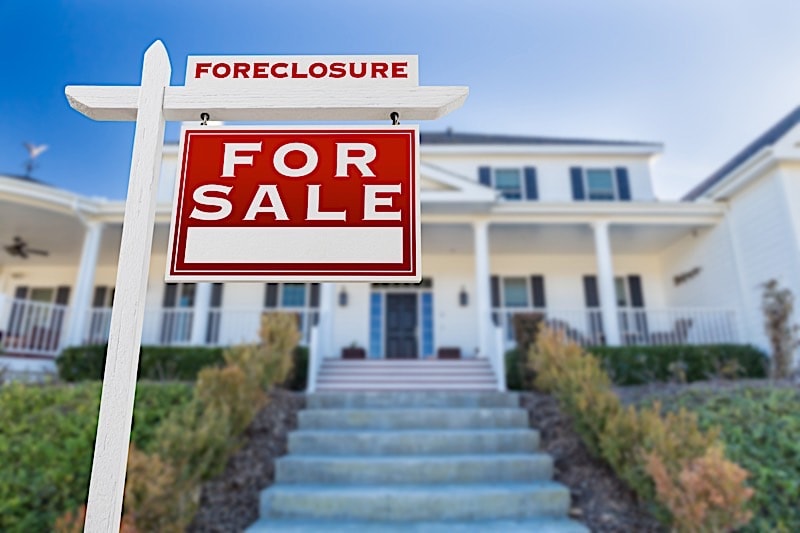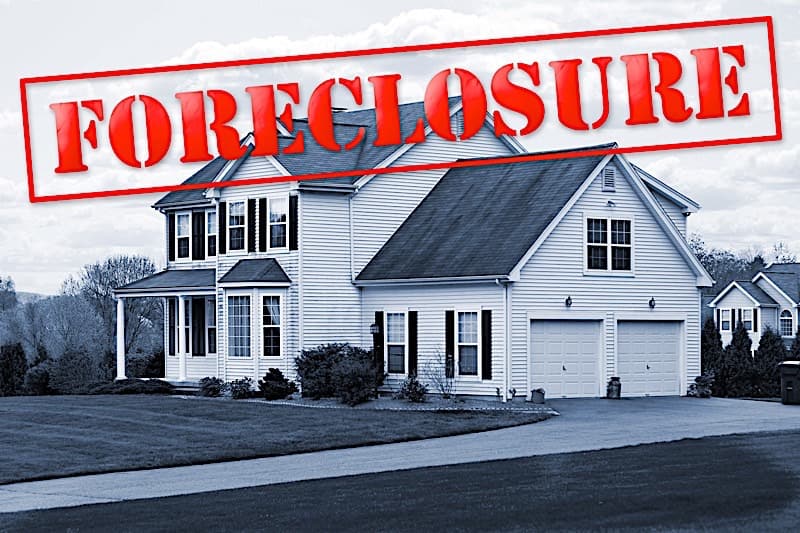Distressed Property Guide
By Than Merrill
Outside of a sound education and a trusted source of funding, there is perhaps nothing else more coveted by today’s real estate investors than a distressed property with attractive profit margins. Buying distressed real estate has not only become synonymous with amazing discounts, but also an inherent motivation on behalf of each individual owner to part ways with the property. The unique combination of a distressed homeowner’s willingness to sell and the potential to acquire a property at a discount tips the scales heavily in favor of savvy entrepreneurs. As a result, it’s in every real estate investor’s best interest to familiarize themselves with distressed properties and how they may contribute to a viable business model.
What Is A Distressed Property?
A distressed property is any home that is under the threat of foreclosure, repossession or being sold by the original lender. Consequently, distressed properties are the direct result of the homeowners’ inability to keep up with mortgage obligations or any tax bills levied on them. Otherwise known as pre-foreclosures, homeowners who have missed payments without having officially received a foreclosure notice may also be considered distressed. That said, a distressed property has more to do with the owner’s financial situation than the physical appearance of the property.
[ Interested in learning how to flip houses? Register to attend a FREE real estate class and learn how to get started, right here in your local area. ]

Types Of Distressed Properties
Distressed homes are traditionally synonymous with owners who have demonstrated an inability to comply with mortgage or tax obligations. However, distressed real estate may also include any of the following scenarios:
-
Homes that have neglected to keep up with taxes
-
Homes that have neglected to keep up with mortgage obligations
-
Homes that are legally obligated to be sold because of bankruptcy or divorce settlements
-
Homes being sold due to probate
-
Bank-owned REOs that have already been repossessed by the loan originator
-
Government-owned homes
Benefits Of Distressed Property Buying
There are several benefits associated with buying a distressed property, but every single advantage investors stand to gain by working with distressed properties stems from one thing, and one thing only: motivated sellers. If for nothing else, the extenuating circumstances surrounding the current homeowner often motivate them to part ways with the subject property as quickly as possible, as to avoid falling into foreclosure even further, losing the home, and damaging their credit profile. In other words, the seller’s need to get rid of the home as fast as possible works to the investor’s advantage. At the very least, prospective buyers gain the upper hand in negotiations, facilitating a cheaper, more efficient deal.
Downsides Of Distressed Property Buying
The benefits of buying distressed property are well documented; there may be no other type of real estate asset more coveted by today’s investors. As a result, the best reasons for investing in distressed real estate are also responsible for perhaps the only downside: competition. You see, investing in distressed homes is so advantageous that everyone wants in on the action. Competition over distressed properties is at an all-time high, which may work against those trying to secure deals at a discount.
How To Find Distressed Property Listings
There are several strategies investors may implement to find distressed properties that range from internet searches to physically driving around neighborhoods and networking. Here are some of the most trusted strategies for finding distressed properties in today’s market:
-
Probate Court Listings
-
Delinquent Mortgage Listings
-
Bank-Owned Listings
-
Government-Owned Listings
-
Local Tax Assessor’s Website
Probate Court Listings
Properties left in the wake of a major life event—unique as they may be—are considered distressed. Otherwise known as probate homes, houses that have been inherited through divorce or a death in the family (or any other significant event) represent yet another opportunity for investors to acquire a deal at a discount.
At the very least, some people who inherit homes would rather not deal with the burden of maintaining the newly acquired asset; some may not even be able to afford the home that’s being given to them. There are a number of reasons someone may not want to receive a probate home, which bodes will for today’s investors who know where to look.
Fortunately, finding probate properties isn’t all that difficult; it’s just a matter of looking in the right places. In fact, finding probate properties may be as simple as executing a quick Google search for a probate list. As it turns out, there are companies that have already compiled comprehensive lists of properties in probate, and are willing to sell them for a small price. However, not every neighborhood or market may have lists available for one reason or another. If you are in an area that doesn’t offer probable lists, or you simply don’t want to pay for one, all you need to do is take a trip to your local courthouse—again, probates are public record.
Delinquent Mortgage Listings
Mortgage delinquencies, much like a lot of the distressed property types on this list, are public knowledge. Those who have failed to keep up with mortgage obligations are documented for everyone to see. Therefore, if an investor wanted to see which homeowners in a given area have failed to keep up with payments, all they would need to do is take a trip to the local courthouse. There, they would be made privy to anyone with missing or late payments, and even an address for the property. It is entirely possible for investors to use this information to their advantage and compile a list of distressed property owners.
Bank-Owned Listings
In the event a distressed property is officially foreclosed on, the loan originator (typically the bank) will repossess the home. In an attempt to make up for any lost profits, or to at least recoup some of the expected losses, the loan originator will then place the home up for auction. Not surprisingly, the homes brought to auction will be sold to the highest bidder, which is—in and of itself—a great place for buying distressed property. It is worth noting, however, that not every repossessed home sells at auction. For one reason or another, there are countless homes that are never bid on; those homes then become bank-owned listings (or real estate owned).
The homes that fail to sell at auction are added to the lender’s inventory of non-performing assets (homes owned by the bank, but aren’t in service). Instead of holding onto these homes, the bank would much rather sell them to anyone interested; that’s where investors come in. Savvy investors may find bank-owned listings by simply visiting the websites of their local banks or talking to the agent representing the bank’s inventory of bank-owned homes. Many of the agents will be more than happy to provide lists of their available inventory, not the least of which may be acquired for less than their true market value if the appropriate steps are taken.
Government-Owned Listings
When a homeowner fails to keep up with mortgage obligations, the bank has every right to foreclose on the property and repossess it. However, if the original mortgage was backed by the Federal Housing Administration (FHA) it becomes the property of the U.S. Department of Housing and Urban Development (HUD). Consequently, when a foreclosed property was originally financed by the FHA, it will be sold by the government through a special bidding process on www.hudhomestore.com. The process isn’t all that different from a traditional foreclosure auction, but it is worth noting that the HUD only accepts bids from licensed brokers.
Local Tax Assessor’s Website
Property owners who fail to keep up with the taxes levied on their homes will find their assets distressed. Failure to comply with tax obligations, for that matter, could result in the seizure of the property. As a result, the owner may be extremely motivated to sell before any further action is taken against them or their homes. Perhaps even more importantly, savvy investors may identify these motivated individuals by visiting their local tax assessor’s website. Tax delinquencies are made public knowledge; therefore, searching for distressed properties may be as simple as clicking through a few web pages.
Summary
Buying a distressed property has become synonymous with today’s greatest real estate exit strategies. No other form of real estate acquisition has awarded investors with better profit margins or facilitated smoother transactions than buying from the most motivated sellers. That said, distressed properties are only beneficial to those who know how to find them. Using the strategies listed above, investors should have an easier time finding deals that are worth their time and money.
Key Takeaways
-
Buying a distressed property becomes a lot easier once you know what you are looking for.
-
Distressed property listings are fairly easy to come by, but may coincide with a lot of competition from other investors.
-
Buying distressed property from a motivated seller will award investors with the best profit margins of any real estate asset class.